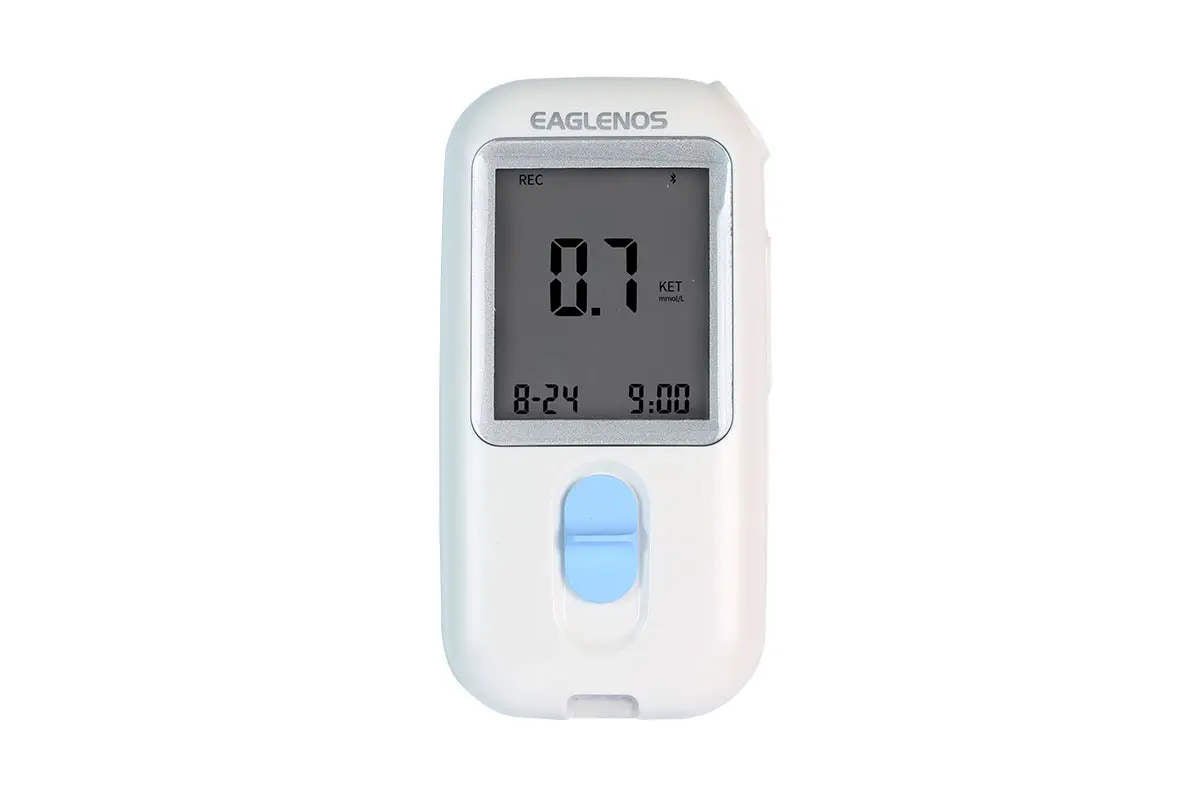Are you on a keto diet? How do you know if you're in ketosis? Testing your ketone levels is an important part of any ketogenic diet to ensure you're on the right track. Testing helps you understand how your body is responding, and can help you make adjustments to maximise results.
But with a few different methods of testing, which one is right for you? In this blog, we will explore the different ways of testing ketones and discuss their benefits and restrictions.
When it comes to testing ketone levels, there are three main methods: urine sticks, breath meters, and blood meters. Each method has its own advantages and disadvantages depending on your budget, lifestyle, and goals.
Urine sticks
Urine sticks / strips are inexpensive and easy to find. They test for the presence of acetoacetate, a type of ketone found in urine. This method of testing is good when you first enter ketosis, but not as accurate later on. Urine sticks can’t detect beta-hydroxybutyrate, which is the type of ketone your body produces during deep ketosis. It’s also important to note that higher ketone levels on urine sticks don’t always mean better results. It’s more important to maintain a consistent level of ketosis rather than constantly try to get higher results..
Breath meters
Breath meters, also known as breath ketone analyzers, test for acetone levels in your breath. Acetone is a type of ketone produced by the body. Testing with a breath meter is often more accurate than using urine sticks but can be less accurate than using a blood meter. Breath meters are easy to use and can be more cost-effective than blood meters. They also give you a real-time reading of your ketone levels. However not all breath meters are created equal, and some are pretty rubbish. If it costs less than $50 chance are it's not great. We recommend checking out the EEK beath meter, it's easy to use, a great price and will give you reliable results.
Blood meters
Blood meters, also known as blood ketone monitors, test for beta-hydroxybutyrate levels in the blood. This method is the most accurate way to test ketones, but it can also be expensive. Blood meters require test strips and lancets, which can be costly over time. However, if you want the most accurate results possible, this is the method to use.
It's important to note that higher levels of ketones do not necessarily mean better results, and everyone's optimal level may differ. Being in ketosis is generally achieved when your ketone levels are between 0.5 - 3.0 mmol/L. Levels above 8.0 mmol/L can be dangerous and indicate a state of diabetic ketoacidosis.
It's also worth noting that testing for ketones is not the same as testing blood sugar. Testing for ketones tells you how your body is doing with ketosis, while testing blood sugar tells you how your body is doing with glucose levels. Both tests are important for different reasons. Some blood meters can test for both glucose and ketones but you need to use different types of test strips for each test.
In summary, testing ketones is a crucial part of any ketogenic journey. Understanding your body’s response is an essential step in maximising the results of your diet. With the right testing method, you can achieve an optimal level of ketosis, enhance your performance and enjoy the benefits of a healthy ketogenic lifestyle. Remember to test your ketones regularly, choose the best method for you and stay on track and be sure to consult with a medical professional before changing your diet!
If you're interested in purchasing urine sticks, breath meters, or blood meters to track your ketone levels, you can find them all on Yo Keto 💪

